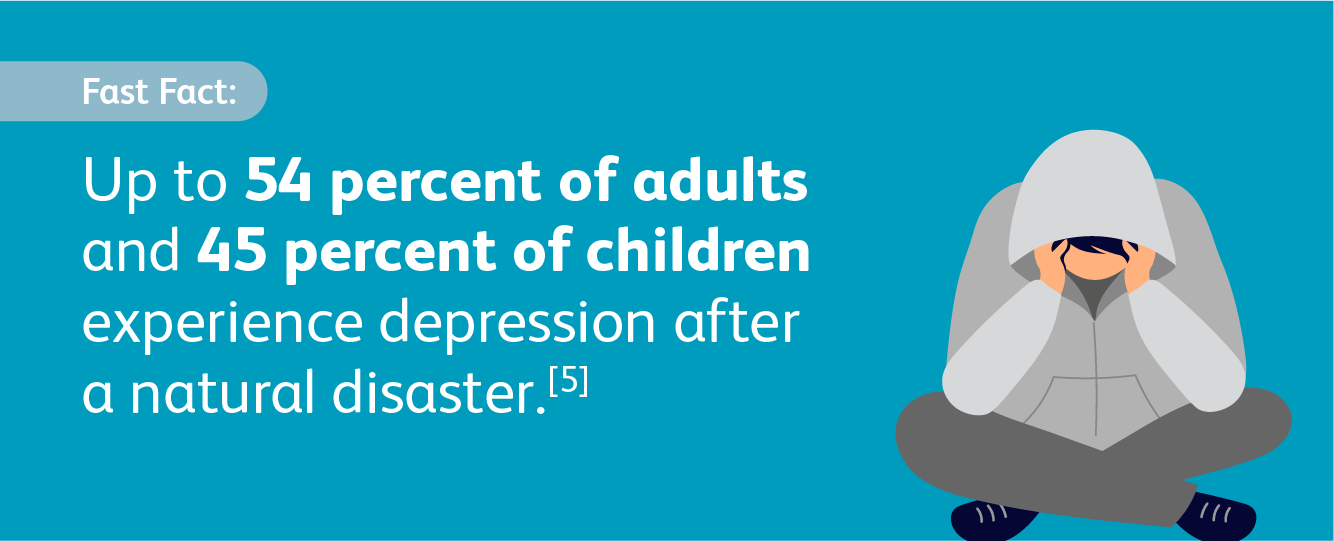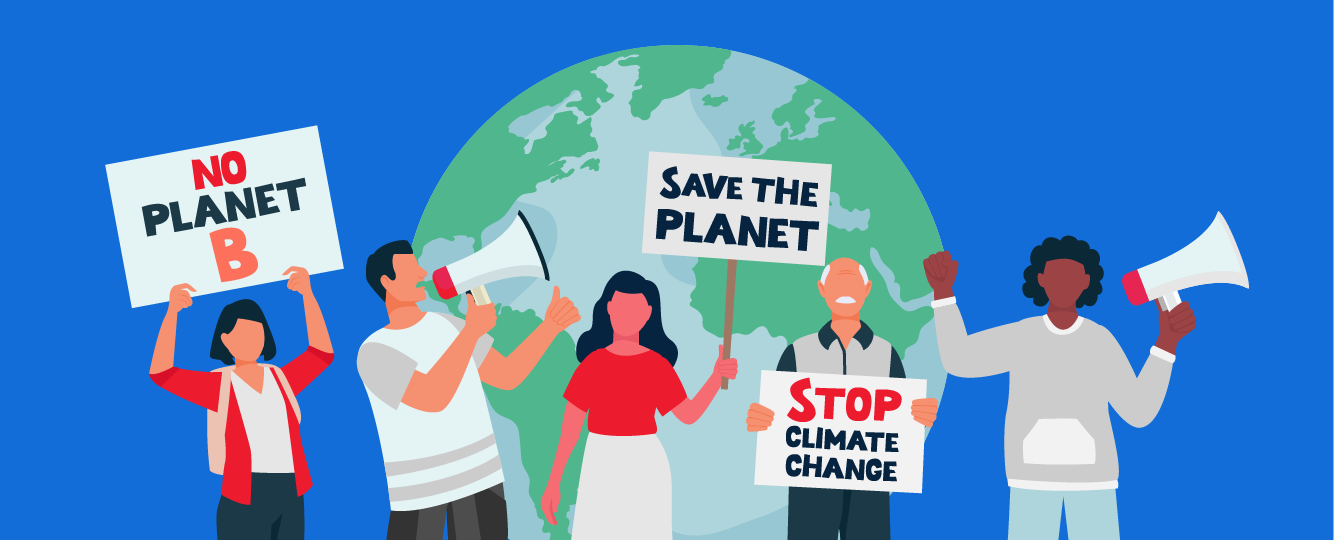
Effects of Climate Change on Mental Health: Helpful Tips
Written by: The Health Aisle Team
Medically Reviewed by: Nadia Pirbhai, BSc, MC, Registered Psychologist

It can be hard to think about the effects of climate change and what it means to us, animals, and the environment. It’s hard to think about a long-term crisis. We have been warned that we have until 2030 to prevent dangerous effects but we haven’t done enough to reduce greenhouse gas emissions.[1]
In a worldwide survey of 10,000 people aged 15 to 25 when asked about climate change, 51 percent felt helpless, 62 percent felt anxious, and 67 percent felt sad. [2]
In the Philippines, 84 percent felt worried about climate change and most felt that it affected their daily life. [2]
Immediate effects after a natural disaster[3][4]
Every extreme weather event like a flood, hurricane, wildfire, or heatwaves can trigger anxiety, trauma and post-traumatic stress disorder (PTSD), sleep disruption, and increased risk of suicide. Some 25 to 50 percent of people exposed to an extreme weather disaster are at risk of adverse mental health effects. These effects can last from months to years.

Continuous effects of global warming[4][6]
The stress from climate change can feel almost paralysing—not because people don’t care, but because they can’t cope. Prolonged stress, worry, anxiety, and feelings of hopelessness and despair can affect how people interact with others and the communities around them. These effects can worsen and intensify pre-existing mental health conditions, but there are ways to help you manage and cope.
“Eco-anxiety” is the chronic fear of environmental doom.

What can you do?
Build awareness
Increase your awareness of the mental health effects that climate change can have. Talk openly about stress and anxiety. Don’t be afraid to share your feelings with friends and family.
Support those at higher risk
Check on people who have existing mental health conditions, the elderly, children, and people who live and work close to the land like farmers and Indigenous communities. Have supportive conversations with friends and family who have suffered a natural disaster. Be aware that it can take many years to recover.
Get involved with your community
Feeling connected to a community that is acting on climate change can help you feel empowered and grounded. Building a community around you can help you feel safe and supported.
Seek Mental Health Support
If the stress or anxiety is difficult to manage by yourself, seek out a mental health care professional, doctor or any other trusted professional.

Know that you are not alone. Even if you have new feelings of depression, anxiety, or stress about climate change, there are ways to manage and get support. Awareness is the first step!
References:
-
Climate change and health.World Health Organization. (2021, October 30). https://www.who.int/news-room/fact-sheets/detail/climate-change-and-health
-
Climate anxiety in children and young people and their beliefs about government responses to climate change: a global survey.Hickman, C., Marks, E., Pihkala, P., et al. (2021). The Lancet. Planetary health, 5(12), e863–e873. https://doi.org/10.1016/S2542-5196(21)00278-3
-
The Psychological Effects of Climate Change on Children.Burke, S., Sanson, A. V., & Van Hoorn, J. (2018). Current psychiatry reports, 20(5), 35. https://doi.org/10.1007/s11920-018-0896-9
-
Global climate change and mental health. Current opinion in psychology, 32, 12–16.Palinkas, L. A., & Wong, M. (2020). https://doi.org/10.1016/j.copsyc.2019.06.023
-
A meta-analysis of risk factors for depression in adults and children after natural disasters. BMC public health, 14, 623.Tang, B., Liu, X., Liu, Y., Xue, C., & Zhang, L. (2014). https://doi.org/10.1186/1471-2458-14-623
-
Mental Health and Our Changing Climate: Impacts, Implications, and Guidance.Clayton, S., Manning, C. M., Krygsman, K., & Speiser, M. (2017). Washington, D.C.: American Psychological Association, and ecoAmerica. https://www.apa.org/news/press/releases/2017/03/mental-health-climate.pdf
